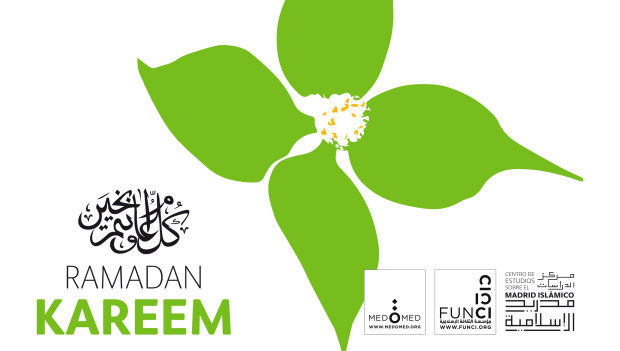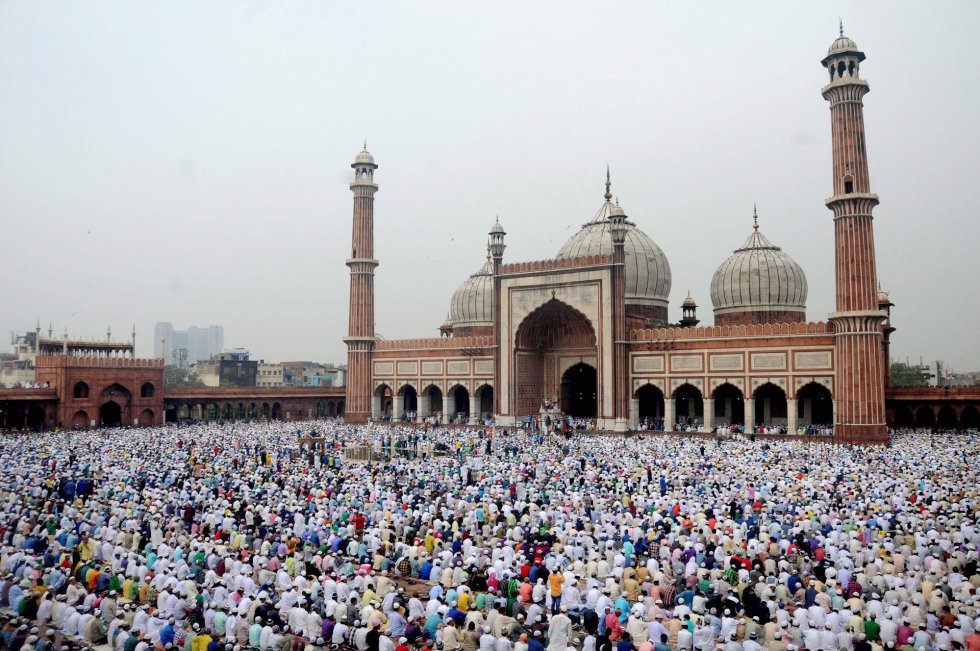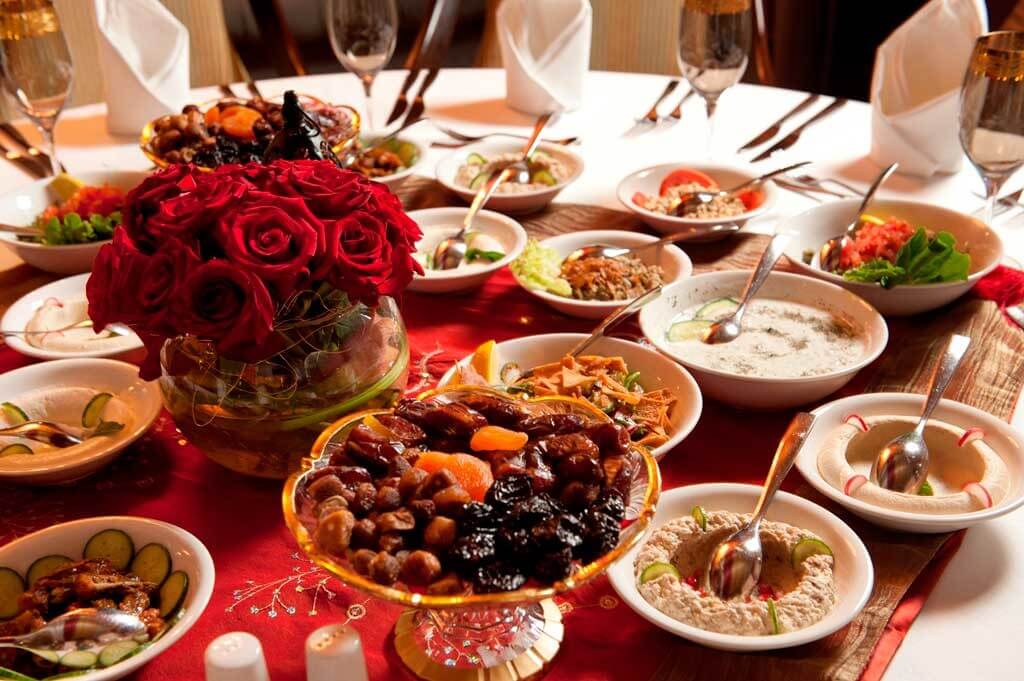With the beginning of the month of Ramadan, we recover this article from our website Islamic Culture Foundation, which answers the main doubts non-Muslims have every year, as Ramadan starts. This short explanation, developed by the Association of Belgian Professional Muslims, hopes to contribute to the understanding of Ramadan in the West and to help the coexistence and solidarity between those fasting and those who aren’t.
Working in a place where fasting is not part of their habits and traditions for decades, or even centuries, who hasn’t faced, year after year, the questions, surprised faces, the “that is so brave, I could never do it!”, or even the worried or condescending looks in the working environment. That’s it, all of us!
The Association of Belgian Professional Muslims (ABPM) has developed, with some sense of humor, the questions/answers, the Frequently Asked Questions (FAQ), that you can send to your colleagues or even hang it on the wall. Maybe that way you can avoid the questions on why you look a bit thinner than usual…
Ramadan is…
Ramadan is the ninth month of the Muslim calendar.
It is, above all, a spiritual month, which focus on the “we can: improve, be closer to God, help our neighbors, be part of a caring community united by faith…”, more than in the “we can’t: eat, drink, smoke, put on make-up…”. It is, thus, a month of joy, spirituality and good deeds, more than a month of deprivations.
Isn’t it too hard?
You think you could never do it?
Let’s make one thing clear. Muslims are not superheroes, nor camels with a water reserve that allows them to stay the whole day without drinking. Everyone can do it, it is just a question of will, faith, and some practice.
But let’s be honest. Yes, it is not always easy. Some days are harder than others, especially if they are long.
Not even drink?
No! But again, that is not the most important thing.
Why do Muslims fast?
Fasting during the month of Ramadan is one of the five pillars of Islam. It was established this month because it is when the holly book –the Qur’an– began to be revealed to Prophet Muhammad (the last Prophet according to the Muslim faith). The Qur’an establishes that all good Muslims must fast this month, every year (Qur’an 2:185 [chapter 2 Al-Baqarah, verse 195]).
Fasting is directed to the collective recitation of the Qur’an (“Tawarih”), every evening until the end of the month. It is also a month of mercy and celebration of the grace of God, which gathers the whole Muslim community.
Yes, but, during Ramadan, you can’t…?
That’s it, during Ramadan we can’t eat or drink, or have sexual relations between the dawn and dusk. That means that, during this month, the coffee or lunch break will be only that, a break.
More than the monthly deprivation of human pleasures, always encouraged by God, it is a month in which the believer tries to improve as a person, repressing its worst aspects: the lying, the hypocrisy, the selfishness…
The deprivation of human pleasures is also a way for the believer to realize that the daily satisfaction of needs is something that only a small part of the community enjoys. That way, the need for sharing and for justice are emphasized.
Dawn…?
Yes, the dawn and the rising of the sun are not the same thing. We need to remember that dawn is the beginning of the beginning of brightness in the sky, approximately two hours before the sun is up.
But, when does Ramadan begin?
It depends on the moon, as Ramadan is the ninth month of the Muslim calendar, which is a lunar calendar. That is the reason that dates change every year (in the solar calendar), if we take into account that the lunar year has 354 days and is, thus, shorter that the solar year (365 days).
We are currently in the year 1439 of the Muslim calendar, which begins with the exile (Hegira) of the Prophet from Mecca to Madinah (both in Saudi Arabia today) in the year 622 (of the solar calendar).
Why doesn’t it have a fixed date? It would be easier, wouldn’t it?
It is fixed in the Muslim calendar, but not in the Gregorian calendar. And no, it wouldn’t be more comfortable, quite the opposite! Because the lunar year is shorter, Ramadan moves back approximately 11 years every solar year, so it varies in period and season. This allows the different Muslim communities to enjoy days of different lengths. If Ramadan follows the solar calendar, every year we would just go to the farther place in the northern hemisphere, where days are shorter.
Is Ramadan the “Muslim Lent”?
Absolutely not. The following points gather the main differences between them:
- Ramadan is, above all, a month of the Muslim calendar. In the original Latin language, it is called Quadragesima, which means “forty” and which is a reference to Easter, at the end of the Lent.
- The month of Ramadan references the beginning of the revelation of the Qur’an to the Muslim community. The Lent, originally, was the moment when adults who were going to be baptized received an intensive training. Soon, all Christians began to consider this period as a time of reflection on their own baptism and commitment to following the risen Christ.
- Ramadan follows the Muslim calendar, a lunar calendar, whereas Lent follows the Gregorian calendar, a solar one.
- Fasting is clearly codified by rules deriving from the Qur’an and the Prophetic tradition. Christians, on the other hand, need to temper down everything that is bringing them apart from Christ. It is up to every Christian to choose in which fields he wants to free himself: he might want to cut down alcohol, cigarettes or food; but he also can focus on family, work, etc. Nowadays, fasting is barely practiced during Lest, with the exception of Ash Wednesday or Good Friday. However, the tradition of not eating lean (that is, not eating meat or food with animal fat) has survived.
And isn’t it serious if…?
You eat in front of us and it is not a problem, we ae not starving… If you ask us to go have lunch, it’s also ok, you can forget we are fasting… And if you have any more questions, you can always ask them to us…

















No Comments